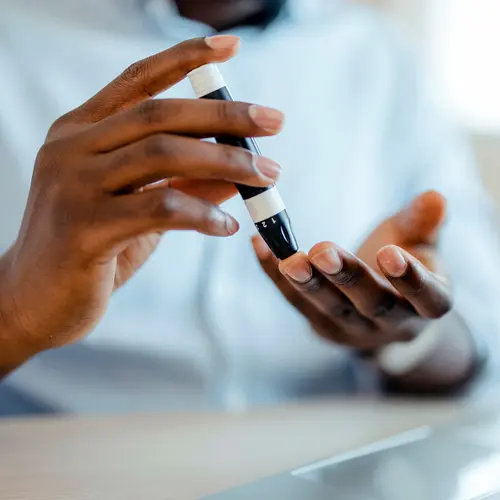Nicotine can make your blood sugar level go up or down. The chemical alters the way your body can use glucose, the sugar in your blood that fuels your cells.
It could raise your odds of getting type 2 diabetes, and it can make your diabetes worse. On the flip side, nicotine may cause severe low blood glucose (hypoglycemia) for people who have diabetes and take insulin.
Insulin Resistance
Nicotine changes chemical processes in your cells so they don't respond to insulin and let it in, a condition called insulin resistance.
Your cells need insulin so they can take glucose out of your blood and use it for energy. When they can't, the glucose stays in your blood, and your blood sugar level goes up.
Nicotine can also trigger your body to make more triglycerides, a type of fat linked to insulin resistance. And nicotine raises levels of hormones that fight insulin.
What Happens to Your Body
It doesn't take long for smoking to affect your cells' ability to use insulin. You could have signs of insulin resistance just an hour later. Studies show that people who have diabetes and smoke need larger doses of insulin to control their blood glucose.
That's a problem because when your blood glucose is too high for a few years, it could lead to heart disease and damage to your kidneys, nerves, and eyes.
Sources of Nicotine
Smoking is the most common way of getting nicotine, and the more cigarettes you smoke, the more likely you are to get type 2 diabetes. People who smoke have a 30% to 40% greater chance. Smoking more than 20 cigarettes a day almost doubles your odds.
Other ways of getting nicotine can raise your blood glucose, too:
- Passive smoking, or secondhand smoke (breathing in smoke from other people's cigarettes)
- Chewing tobacco (dip, pinch, chew)
- Nicotine gum
- Electronic cigarettes (e-cigs, vaping)
Quitting Helps
Your insulin resistance might get a little bit worse if you gain weight in the first few weeks after you stop using nicotine -- but stick with it. By the end of the second month, insulin will begin to work better.
If you don't already have diabetes, you may be more likely to get type 2 after you quit. The chance of getting it is highest for the first 2 years. That's usually because you've gained weight, so talk to your doctor about ways to avoid putting on pounds.
After 2 years, the chances begin to drop, and by 12 years, you'll be on a level playing field with someone who never smoked.

